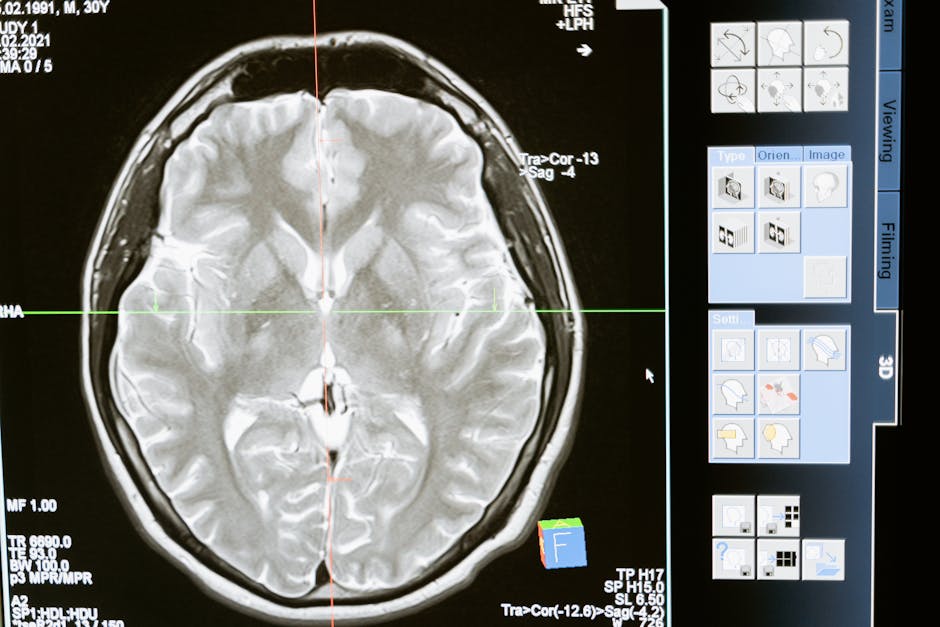How AI Is Revolutionising the Healthcare Industry: Opportunities for SMES
As you explore the healthcare industry, you’ll discover how AI-driven innovations are transforming diagnostics, personalised medicine, predictive analytics, and more. AI-enhanced systems improve diagnostic accuracy, enable early disease detection, and streamline clinical workflows. You’ll also find AI-powered medical chatbots and virtual assistants revolutionising patient care. Cybersecurity measures safeguard sensitive patient data, while AI-driven genomics enables targeted therapies. As you navigate this rapidly evolving landscape, you’ll uncover opportunities for SMEs to stay ahead of the curve and improve patient outcomes. By embracing AI, you’ll tap into the full potential of healthcare transformation. There’s more to explore on this journey.
Key Takeaways
• AI-driven diagnostics enhance accuracy and speed, enabling SMES to provide timely interventions and improve patient outcomes.• AI-powered predictive analytics help SMES identify high-risk patients, enabling proactive measures to prevent illnesses and reduce costs.• AI-driven automation streamlines clinical workflows, freeing up SMES staff to focus on high-value tasks and improving the patient experience.• AI-powered genomics enables SMES to develop personalised treatment plans, improving treatment outcomes and reducing the risk of adverse reactions.• AI-driven health analytics create personalised health plans, empowering patients to take a more active role in their care and improving health outcomes.
AI-Driven Diagnostics and Imaging

With AI-driven diagnostics and imaging, you can expect a significant reduction in diagnosis time, as machine learning algorithms can process medical images and patient data at unprecedented speeds.
This means that healthcare professionals can focus on providing quality care, rather than spending hours pouring over medical images and test results.
In medical imaging, AI-driven systems can enhance diagnostic accuracy by identifying patterns and anomalies that may be difficult for human clinicians to detect.
For instance, AI-powered computer vision can help radiologists identify breast cancer from mammography images with a high degree of accuracy.
Similarly, AI-driven systems can help identify cardiovascular disease from MRI scans, enabling early intervention and treatment.
The impact of AI-driven diagnostics and imaging on patient outcomes can’t be overstated.
With accurate and timely diagnoses, patients can receive targeted treatment, reducing the risk of misdiagnosis and improving health outcomes.
In addition, AI-driven systems can help reduce healthcare costs by minimising unnecessary procedures and tests.
As AI technology continues to evolve, you can expect even more innovative applications in medical imaging, further improving diagnostic accuracy and patient care.
Personalised Medicine and Genomics

As AI-driven diagnostics and imaging continue to revolutionise healthcare, your genetic profile is becoming a critical component in the pursuit of personalised medicine.
With the help of artificial intelligence, genetic profiling is becoming more accurate and efficient, enabling healthcare professionals to tailor treatment plans to your unique genetic makeup. This is particularly significant for patients with rare genetic disorders, where targeted therapies can be developed to address specific genetic mutations.
Genetic profiling allows for the identification of genetic variations that may predispose you to certain diseases or affect your response to medications.
By analysing your genetic data, healthcare providers can create personalised treatment plans that take into account your genetic profile. This not only improves treatment outcomes but also reduces the risk of adverse reactions to medications.
AI-powered genomics is also facilitating the development of targeted therapies, which are designed to target specific genetic mutations. These therapies are more effective and have fewer side effects compared to traditional treatments.
With AI-driven genomics, you can expect more accurate diagnoses, personalised treatment plans, and improved health outcomes. As the technology continues to evolve, you can expect even more innovative applications of AI in personalised medicine, empowering you to take control of your health like never before.
Predictive Analytics for Prevention

By analysing your electronic health records, medical history, and real-time health data, AI-powered predictive analytics can identify early warning signs of potential health issues, enabling you to take proactive measures to prevent them.
This is particularly useful for chronic diseases, where early intervention can greatly improve outcomes. AI-driven risk profiling enables healthcare providers to identify high-risk patients and tailor interventions to their specific needs.
For instance, if you’re at risk of developing diabetes, your healthcare provider can work with you to develop a personalised prevention plan.
Disease forecasting is another key application of predictive analytics in healthcare.
By analysing population health data, AI algorithms can forecast disease outbreaks, allowing healthcare providers to prepare and respond proactively. This can be especially valuable for infectious diseases, where rapid response is critical.
For example, if AI-powered disease forecasting predicts a flu outbreak in your area, your healthcare provider can take steps to vaccinate high-risk patients and prepare for a potential surge in cases.
Streamlining Clinical Workflows

You can substantially reduce the administrative burden on healthcare professionals by automating routine tasks and streamlining clinical workflows with AI-powered tools.
This can notably boost clinical efficiency, allowing healthcare professionals to focus on high-value tasks that require human expertise and empathy. By automating mundane tasks, you can reduce the likelihood of human error, freeing up staff to focus on providing exceptional patient care.
Task automation can also help streamline clinical workflows, making it easier to manage patient data, track medical histories, and coordinate care.
AI-powered tools can quickly process large amounts of data, identifying patterns and anomalies that may indicate potential health risks. This enables healthcare professionals to respond promptly to emerging health issues, providing timely interventions that can improve patient outcomes.
With AI-driven automation, you can optimise clinical workflows, reducing wait times, and improving the overall patient experience.
Enhancing Patient Engagement

As you explore the potential of AI in healthcare, you’ll discover that enhancing patient engagement is a vital aspect of care.
By leveraging AI, you can create personalised health plans tailored to individual needs, empowering patients to take a more active role in their care.
Additionally, AI can facilitate accessible health information, enabling patients to make informed decisions about their well-being.
Personalised Health Plans
Personalised health plans, tailored to an individual’s unique needs and preferences, empower patients to take a more proactive role in their care, fostering a deeper sense of engagement and ownership over their health outcomes.
With AI-driven health analytics, you can now receive a customised plan that addresses your specific health goals and risk factors. This personalised approach enables you to make informed decisions about your care, leading to better health outcomes and improved quality of life.
Health Coaches: AI-powered health coaches provide guidance and support to help you achieve your health goals, offering personalised advice and motivation.
Lifestyle Modifications: AI-driven analytics identify areas for improvement in your lifestyle, providing actionable recommendations for healthy changes.
Targeted Interventions: AI identifies high-risk patients and provides targeted interventions to prevent health complications.
Patient-Centric Care: AI-driven health plans prioritise patient needs and preferences, ensuring care is tailored to your unique needs.
Proactive Prevention: AI-powered health plans focus on prevention, detecting potential health issues before they become severe.
Accessible Health Information
Accessible health information is vital for empowering patients to take an active role in their care, and AI-driven systems can streamline access to relevant data, enabling individuals to make informed decisions about their health. You can now take charge of your health like never before. With AI-powered platforms, you can access personalised health information, track your medical history, and receive tailored recommendations for your well-being.
| Benefits of Accessible Health Information | Impact on Patient Engagement |
|---|---|
| Improved Health Literacy | Enhances patient understanding of medical conditions and treatment options |
| Increased Patient Engagement | Encourages patients to take an active role in their care |
| Reduced Digital Divide | Ensures equal access to health information for all patients |
| Personalised Health Insights | Enables informed decisions about your health and wellness |
AI-Assisted Medical Research

You can accelerate medical breakthroughs by leveraging AI to analyse vast amounts of genetic data, identify patterns, and pinpoint potential therapeutic targets. This allows researchers to identify new leads and potential cures for diseases, and enables the development of personalised medicine.
With AI, researchers can analyse vast amounts of data quickly and efficiently, freeing up time for more in-depth analysis and experimentation.
AI is revolutionising medical research in several ways:
Streamlining research funding: AI can help identify areas of research that are most likely to yield breakthroughs, ensuring that funding is allocated effectively.
Improving data quality: AI can help clean and prepare data for analysis, reducing errors and inconsistencies that can slow down research.
Identifying new biomarkers: AI can analyse genomic data to identify new biomarkers for diseases, allowing for earlier diagnosis and treatment.
Developing personalised medicine: AI can help analyse genetic data to develop personalised treatment plans tailored to individual patients.
Accelerating drug discovery: AI can analyse vast amounts of data to identify potential new drug candidates, accelerating the drug discovery process.
Intelligent Healthcare Management

By leveraging AI-powered analytics, healthcare providers can optimise resource allocation, streamline clinical workflows, and enhance patient care through intelligent healthcare management. You can improve care coordination by using AI to identify high-risk patients, predict readmission rates, and detect potential complications. This enables healthcare providers to proactively develop personalised care plans, reducing hospital readmissions and improving patient outcomes.
| AI Application | Healthcare Benefit | Impact on Patient Care |
|---|---|---|
| Predictive Analytics | Identifies high-risk patients | Proactive care planning, reduced readmissions |
| Clinical Decision Support | Streamlines clinical workflows | Improved patient safety, reduced errors |
| Natural Language Processing | Enhances medical informatics | Accurate data analysis, improved care coordination |
| Care Pathway Analysis | Optimises resource allocation | Efficient use of resources, improved patient flow |
| Patient Engagement Platforms | Enhances patient engagement | Improved patient satisfaction, better health outcomes |
Cybersecurity in Healthcare

As you explore the intersection of AI and healthcare, you’re likely aware that cybersecurity is a critical component of this landscape.
You’re tasked with safeguarding sensitive Protected Health Information (PHI) and mitigating the risks of data breaches, which can have devastating consequences.
Now, let’s examine the key concerns, including the vulnerabilities of medical devices, to establish a secure and reliable healthcare ecosystem.
Protected Health Information
Healthcare organisations handle massive amounts of sensitive data, including electronic protected health information (ePHI), which cybercriminals constantly target, making robust cybersecurity measures essential to safeguarding patient data.
As a healthcare professional, you understand the importance of protecting patient confidentiality and adhering to regulations like HIPAA.
When it comes to protected health information, you need to confirm that your organisation has a solid data governance strategy in place.
This includes implementing robust access controls to limit who can access ePHI.
Conducting regular security audits to identify vulnerabilities.
Guaranteeing all employees understand their roles in protecting ePHI.
Implementing encryption and secure data storage solutions.
Developing incident response plans to address potential breaches.
Data Breach Risks
As you navigate the healthcare industry, it’s vital to acknowledge the looming threat of cyberattacks.
Cyberattacks targeting healthcare organisations are increasingly common, putting sensitive patient data at risk of exposure and exploitation.
You’re likely aware that a single breach can have devastating consequences, compromising patient trust and putting your organisation’s reputation on the line.
As a healthcare provider, you’re responsible for safeguarding protected health information (PHI).
However, the rise of interconnected devices and digital health records has created a vast attack surface for cybercriminals to exploit.
You must prioritise cybersecurity threats and implement strict safeguards to avoid hefty fines and reputational damage.
The Health Insurance Portability and Accountability Act (HIPAA) and General Data Protection Regulation (GDPR) dictate strict guidelines for data protection, and staying compliant is vital to avoid legal repercussions.
By investing in robust cybersecurity measures, you can mitigate the risk of data breaches and protect sensitive patient information.
Medical Device Security
You’re likely to encounter medical devices that are vulnerable to cyber threats, from insulin pumps to pacemakers, which can have devastating consequences for patient safety. As medical devices become increasingly connected to the internet, the risk of cyber attacks grows. This can lead to compromised patient data, disruption of critical care, and even physical harm.
To mitigate these risks, it’s essential to implement robust security protocols.
Conduct regular security audits to identify device vulnerabilities and address them before they can be exploited.
Implement secure communication protocols to protect data transmitted between devices and healthcare systems.
Establish incident response plans to quickly respond to cyber attacks and minimise damage.
Provide cybersecurity training to healthcare professionals to ensure they can identify and respond to cyber threats.
Collaborate with device manufacturers to ensure they’re designing devices with security in mind and providing timely security patches.
AI-Powered Medical Chatbots

As you explore the possibilities of AI in healthcare, you’ll discover the transformative power of AI-powered medical chatbots.
Leveraging natural language processing and machine learning algorithms, AI-powered medical chatbots are revolutionising patient engagement by providing 24/7 access to personalised medical guidance and support.
These intelligent interfaces are designed to understand and respond to patient enquiries, addressing concerns and alleviating anxiety.
By incorporating patient empathy into their programing, chatbots can provide emotional support and comfort to patients, making them feel heard and understood.
This empathetic approach helps build trust and fosters a sense of connexion, which is essential for effective patient care.
In addition, chatbot ethics play a pivotal role in ensuring that these AI systems are designed with transparency, accountability, and fairness in mind.
This means that chatbots must be programed to prioritise patient autonomy, confidentiality, and dignity.
As you venture further into the world of AI-powered medical chatbots, you’ll realise the immense potential they hold for improving patient outcomes and enhancing the overall healthcare experience.
By providing personalised support and guidance, these innovative tools can help patients take a more active role in their care, leading to better health outcomes and reduced healthcare costs.
As the healthcare landscape continues to evolve, one thing is clear: AI-powered medical chatbots are poised to play a pivotal role in shaping the future of patient care.
Virtual Assistants in Healthcare

As you explore the domain of virtual assistants in healthcare, you’ll discover how these AI-driven tools are revolutionising patient care.
Virtual assistants are being designed to provide personalised health guidance, empowering patients to take a more proactive approach to their well-being.
Medical Chatbots Emerge
Virtual healthcare assistants, powered by artificial intelligence, are revolutionising patient engagement and experience by providing 24/7 support and personalised guidance. As you interact with these medical chatbots, you’ll notice how they streamline your healthcare journey. From initial consultations to ongoing care, these AI-driven assistants are designed to make your life easier.
Symptom Chequer: You can input your symptoms and receive immediate guidance on potential causes and next steps.
Patient Onboarding: Chatbots can help you complete paperwork, answer medical history questions, and more, freeing up staff to focus on higher-value tasks.
Medication Reminders: Get timely reminders to take your medication, ensuring you stay on track with your treatment plan.
Appointment Scheduling: Easily schedule or reschedule appointments with the help of a chatbot.
Basic Health Enquiries: Get quick answers to common health questions, saving you time and reducing the burden on healthcare staff.
Personalised Health Guidance
You’ll receive personalised health guidance from virtual assistants that analyse your medical history, lifestyle, and health goals to provide tailored recommendations and support.
These virtual assistants, often referred to as Health Coaches, use AI-powered algorithms to understand your unique needs and preferences. They’ll guide you through Wellness Programmes designed to improve your physical and mental well-being.
Imagine having a personalised fitness plan, nutrition advice, and stress management techniques at your fingertips.
As you interact with your virtual Health Coach, you’ll receive actionable insights and encouragement to help you achieve your health objectives.
Your virtual assistant will continuously learn from your interactions, refining its guidance to guaranty you stay on track.
With personalised health guidance, you’ll feel empowered to take control of your health, making informed decisions that aline with your values and goals.
Future-Proofing SMES With AI

By integrating artificial intelligence into their operations, small to medium-sized enterprises (SMEs) can future-proof their businesses, staying competitive in an increasingly digital healthcare landscape. As a SME in the healthcare industry, you need to stay ahead of the curve to remain relevant. By adopting AI, you can streamline processes, reduce costs, and improve patient outcomes.
To future-proof your business, you need a solid AI strategy that alines with your business goals.
Develop a digital readiness roadmap: Assess your current digital infrastructure and identify areas for improvement.
Identify AI-enabled opportunities: Pinpoint areas where AI can drive the most value, such as patient engagement or clinical decision support.
Build an AI-ready workforce: Upskill your employees to work effectively with AI systems.
Establish data governance: Guaranty data quality, security, and compliance with regulations.
Monitor and evaluate AI performance: Continuously assess the effectiveness of your AI strategy and make adjustments as needed.
Conclusion
As you navigate the transformative landscape of healthcare, AI emerges as the beacon of hope, illuminating a path towards precision, efficiency, and personalised care.
Like Ariadne’s thread, AI guides us through the labyrinth of medical complexities, weaving together diagnostics, genomics, and analytics.
As you harness the power of AI, your SME is poised to revolutionise healthcare, crafting a future where prevention is the new treatment, and patients are the ultimate beneficiaries.
Contact us to discuss our services now!
